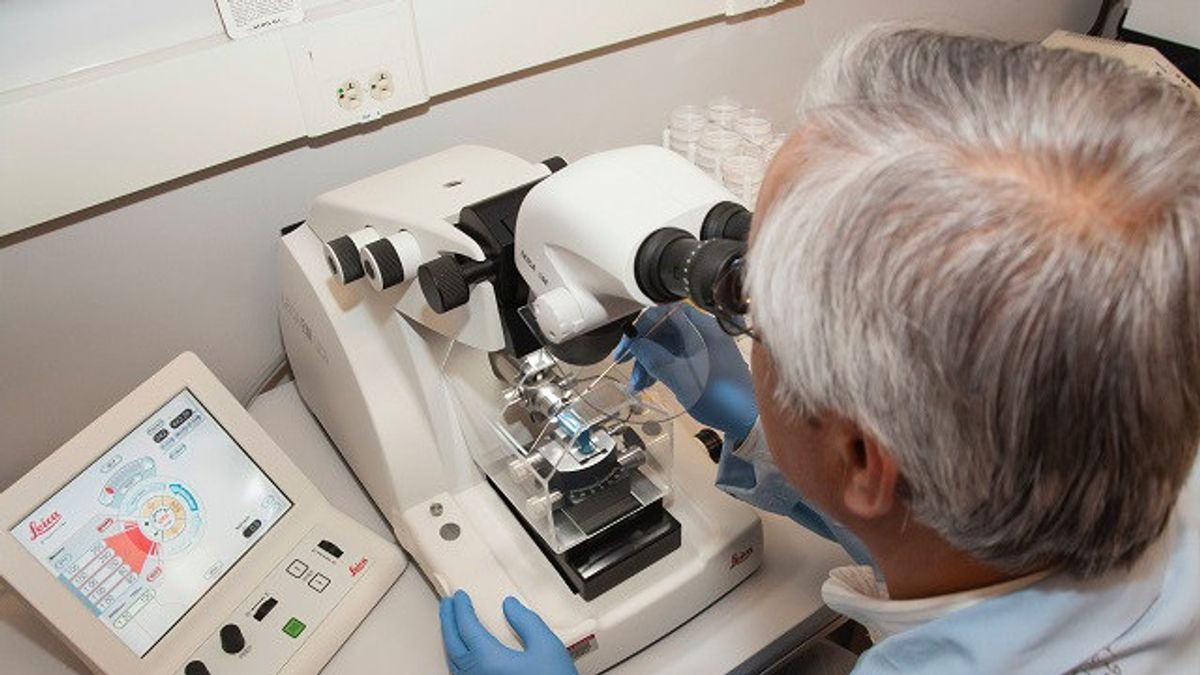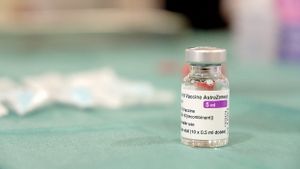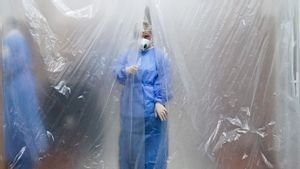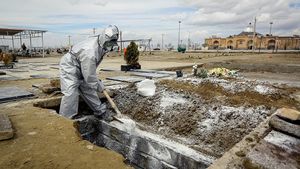JAKARTA - Researchers have again found evidence of low levels of the Coronavirus circulating in the United States since early December 2019, a few weeks before the first cases were officially reported.
Frozen blood samples showed people in five states, Illinois, Wisconsin, Pennsylvania, Mississippi, and Massachusetts, infected with the coronavirus days or weeks before any cases were officially reported in those states.
Volunteers taking part in the National Institutes of Health's (NIH) 'All of Us' study, in an ongoing effort to gather health information on 1 million people, donated blood as part of the study.
Tests of 24,000 samples taken in early 2020 showed antibodies to the coronavirus in the blood of at least nine people, the All of Us researchers report in the journal Clinical Infectious Diseases.
"This includes individuals with specimens collected January 7 from Illinois, January 8 from Massachusetts, February 3 from Wisconsin, February 15 from Pennsylvania, and March 6 in Mississippi," they wrote.

The first previously recognized COVID-19 case in Illinois was reported on January 24, in a woman who had recently returned from Wuhan, China, the researchers said.
The first confirmed case in Massachusetts was not until February 1. In Wisconsin, the first confirmed case occurred on February 5, in Pennsylvania the first case reported was March 6, and in Mississippi on March 11.
"Because it takes about two weeks to develop antibodies after infection, the findings suggest some volunteers were infected in the December month," the researchers said.
"Among the first 12 known cases of SARS-CoV-2 infection in the United States, the earliest known date of onset of symptoms was January 14, 2020, and all 12 cases had either recently traveled to mainland China or were close contacts of recently returned travelers. Domestic testing for SARS-CoV-2 began in mid-January 2020," they added.
At the time. the federal government only recommends testing people with symptoms who have a history of travel, or direct contact with travelers. The findings suggest that policy is skipping cases, the researchers said.
"I think what this research shows is that there's still a lot we have to uncover and piece together from the days of this epidemic in the United States," Dr. Keri Althoff, an epidemiologist at the Johns Hopkins Bloomberg School of Public Health who worked on the study, told CNN.

A study published last November found evidence of antibodies in the blood of people in the United States on December 13. Other research also shows the virus landed in Uncle Sam's country in December.
"This study contributes to evidence of low circulating levels of SARS-CoV-2 in many states early in the United States epidemic," the researchers wrote.
While the data provided as part of the study is anonymized, researchers can contact volunteers and plan to do so, said Sheri Schully, who co-worked on the All of Us project at NIH.
"They have a participant portal, where they can actually go in and see what is being done with their specimens. They will be asked for more information about whether they have traveled or have been in contact with someone who may have traveled back in 2019 and early 2020," said Schully.
One volunteer whose blood tested positive who also filled out a health survey reported a fever, cough, and sore throat. They revealed the possibility of having COVID-19 around the time of blood sampling.
“A review of electronic health record data over the relevant timeframe revealed that two seropositive participants had mild COVID-19 compatible illness (e.g., fatigue and mild respiratory symptoms). However, additional testing is limited and no diagnosis has been confirmed. The other seven seropositive participants had no evidence of health care utilization in their electronic health record data," the researchers added.
However, the findings don't mean the coronavirus was widespread in the United States in December 2019 or January 2020, the researchers said.
"It's important to remember, if you think you might have COVID-19 in those early days, that I don't think there's anyone out there who hasn't racked their brains about what they might have been through at the start of the pandemic. The prevalence is very, very low, ' said Altoff.

"So if you do have some sort of respiratory infection, the chances of it being SARS-CoV-2 are actually pretty low in this timeframe."
The researchers were careful to make sure they didn't get a false-positive result on the antibody test, and tested each sample twice. Nonetheless, they say, it is possible the test detects pre-existing immunity to the coronavirus that randomly makes antibodies against the 2019 coronavirus. The other four coronaviruses regularly infect people, causing symptoms of the common cold.
SEE ALSO:
The tests used on blood samples detect an immune response to infection and do not look for direct evidence of infection. The findings also suggest minorities have been hit harder by the virus even early in the pandemic. Seven of the nine samples were drawn from older minority participants, the researchers said.
The English, Chinese, Japanese, Arabic, and French versions are automatically generated by the AI. So there may still be inaccuracies in translating, please always see Indonesian as our main language. (system supported by DigitalSiber.id)

















